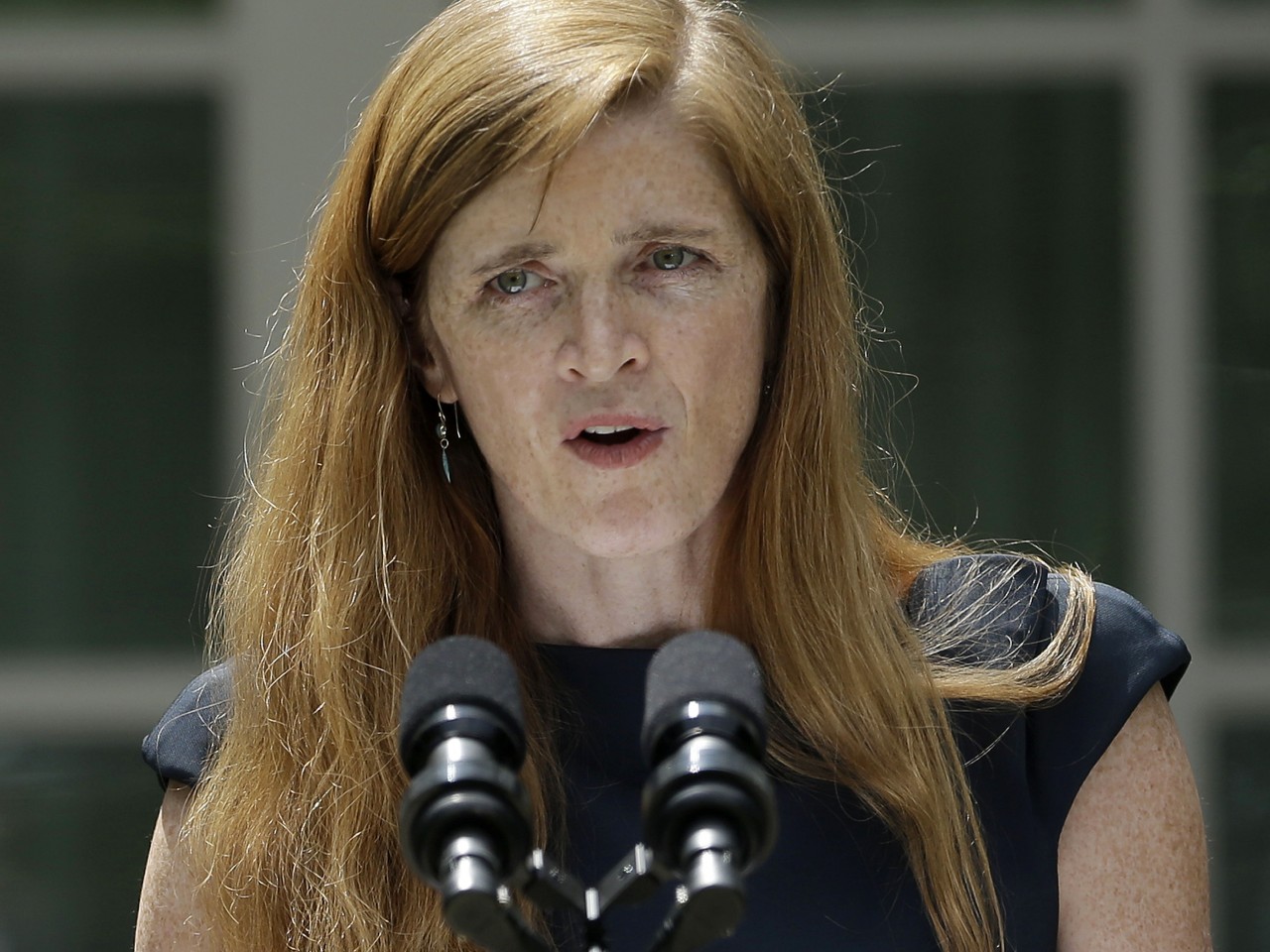Reactions to Samantha Power’s recent nomination for the post of United States Ambassador to the United Nations have been mixed. While some applaud Power’s nomination as a sign that President Barack Obama is upping the ante on his commitment to human rights, others have expressed discomfort with the nomination, pointing to controversial comments Power has made about the Israeli-Palestinian question.
Power is a divisive and controversial figure in American politics and a well-known human rights scholar and activist. She stepped onto the scene in 2003 with the publication of her Pulitzer Prize-winning book, Problem from Hell: America and the Age of Genocide, a vociferous criticism of a history of U.S. government indifference in the face of international humanitarian crises. Power is a strong proponent for humanitarian intervention, possibly because of her experience as a journalist in the Balkans. She has condemned the Western practice of “appeasing” dictators and laments that efforts to end or prevent genocide are repeatedly “lost in the realm of domestic politics.” She has been dubbed a “humanitarian hawk” for adopting such positions and asserts, without qualification or hesitation, that “the United States must be prepared to risk the lives of its soldiers” to stop the threat of genocide.
Power’s strong policy stances, including her dogmatic views regarding human rights violations, have provoked criticism. Texas Senator Ted Cruz sharply criticized her nomination, suggesting she would be “an advocate of elevating UN interests over US sovereignty.” Commentary magazine’s Seth Mandel wrote, “that such a person should not be anywhere near the levers of power.”
However, the most puzzling critiques, which have emerged from both the political left and right, center on Power’s sex. Such critiques have suggested that Power’s policy stance follows not from her professional experiences or from intellectual conclusions, but rather, from her feminine nature. Referring to her colleagues and critics in the preface to Problem From Hell, Power notes that “they brand as ’emotional’ those U.S. officials who urge intervention and who make moral arguments in a system that speaks principally in the cold language of interests.” Such references explicitly play on gendered stereotypes by suggesting that Power’s liberal interventionism is derivative of an empathetic, feminine nature.
Other criticisms attribute Power’s efforts to a “Napoleonic Complex” that tends to force the women in a previously male-dominated profession to prove themselves as equally tough or tougher than their male counterparts. Hillary Rodham Clinton faced such critiques in her bid to become the 2008 Democratic presidential nominee. Bill O’Reilly speculated in 2006 that if Clinton became president she would be perceived as “weak” in the eyes of the international community, and thus “in a very difficult position” regarding U.S. national security that may cause her to “overreact to prove herself.” Making use of more hyperbolic rhetoric, a former FBI Special Agent, Colleen Rowley, referred to this trend the “militarization of the mothers.”
Certainly, it is significant that in the same week two women, Susan Rice and Samantha Power, have risen to the highest echelons of the American security establishment. It is tempting to suggest that these promotions signal a new progressive era for women in politics and defense. However, some of the responses that have emerged following Power’s nomination suggest that such congratulatory commentary is premature. To assert that Power’s policy stance is a feature of her femininity is essentialist and anachronistic thinking. What this gendered commentary displays is a belief that Power’s visceral opposition to human right’s atrocities is a product of her sex, or a feature of her professional position vis-à-vis her male counterparts. In other words, the aforementioned comments suggest that the essence of Power’s professional work can be boiled down to the fact that she is a woman.
[captionpix align=”right” theme=”elegant” width=”400″ imgsrc=”http://westphalianpost.files.wordpress.com/2011/10/power-rice-rodham-clinton-2.jpg” captiontext=”If confirmed, Samantha Power will be taking over at the UN for Susan Rice who has been promoted to the position of National Security Advisor.”]
While it is significant that Power is a successful woman in a position that carries incredible political power, that is not the main reason we should care about this recent administrative change. Power’s nomination can be taken as significant for a number of reasons: it may indicate a shift toward more interventionist policies by the U.S.; it could modify the nature of the country’s future engagement with the UN; and it raises questions about future relations between the U.S. and Israel. Importantly, as Kenneth Roth has said, Power is “clearly the foremost voice for human rights within the White House,” and now, more than ever before, “she has Obama’s ear.” The White House’s renewed emphasis on human rights protection could have considerable reverberation throughout U.S. foreign policy. Most notably, Power’s nomination raises questions about the future of U.S. policy with regard to Syria. The former National Security Council advisor is largely credited with advocating for the Libyan intervention; Tom Hayden noted that the mission bore Power’s “intellectual imprint.” Her nomination, plus the shift of the like-minded Rice into the important position of National Security Advisor, could portend a more interventionist future for the Obama administration, and potentially set a new precedent for how the United States’ approaches its human rights obligations and interprets doctrines such as the “Responsibility to Protect.”
These are valid reasons to pay attention to this new administrative shift. Power’s sex is not.
By analyzing Power through these essentialist, gendered lenses, analysts preclude themselves from fundamentally understanding her policies. In other words, without allowing Power to erase the big “W” stamped across her forehead, we are reducing her life’s work—and her staunch political commitment to ending human rights atrocities and genocidal terror—to stereotypical understandings of gender.



